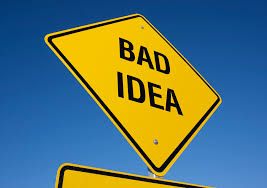TroyDASH
Well-known member
When mining cryptocoins, you do nothing positive for normal people. Mining has only a negative effect, you are adding polution to earth because of the heat of the computer.Mining means you are solving a useless mathematical quiz, and also you are not doing it by yourself so it is not your personal work or effort. It is the computer which mines, and not you. Mining is tottaly geeky. You are not considered to be worthy of respect when mining, it is just like bulding the babel tower, it is a useless act. If this is what you believe, that no one is entitled to receive money for doing nothing (positive), then the same applies to miners also.
Mining (and miners) is yet another flaw inherited by bitcoin. It is yet another failure in bitcoin's initial design. Future cryptocoins , they will use bitcoin's blockchain, they will use a mathematical form in order to become scarce (as it has been introduced in bitcoin), but they will not rely on the difficulty of mining, neither they will depend on miners. The digital coins of the future they will be produced instantly although being scarce, they will be distributed to their first proponents, and then a universal dividend and a basic income written in the protocol will distribute those coins among generations.
Yes, mining is quite "geeky" which is why most people don't do it. But it is not worthless, nor is it below anyone's dignity to mine -- mining is an essential part of how the decentralized network is even possible at all. Frankly, if your goal is to eliminate mining altogether, then neither Dash nor Bitcoin is the project for you. You seem to have quite the vision of how the digital coins of the future will work. I think you will find (and have found already, considering this poll) that the Dash community does not agree with your model. I appreciate your input, but you may want to consider that Dash might not be the best fit for you. I hope that in time you may come to change your mind, and that our network will prove to be both sustainable and fair, but if not, no hard feelings.


